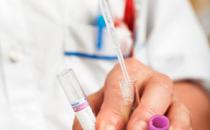Finding that painkillers cut skin cancer risk inconclusive

Commonly used painkillers available over-the-counter, such as aspirin and ibuprofen, may reduce skin cancer risk, according to a new study published in the journal Cancer.
Dr Kim Glass, Lead Physician for Bupa Health and Wellbeing, commented: “The researchers found that people who frequently took non-steroidal anti-inflammatory drugs (NSAIDs) were less likely to develop two major forms of skin cancer, squamous cell carcinoma and malignant melanoma, than those who didn’t take NSAIDs on a regular basis. This protective effect was increased the longer and more NSAIDs people took, especially when the medicines were taken for seven years or more and at high dose. However, no reduction in risk was found for the third major form of skin cancer, basal cell carcinoma.
“Based on this research, I wouldn’t recommend anyone taking NSAIDs to reduce their skin cancer risk. There are too many flaws in this study to make the findings conclusive. For example, not all the cases of skin cancer in the population were recorded, it’s estimated that only 60 percent of people who were diagnosed with skin cancer were included in the study. Secondly, only the use of prescription NSAIDs was measured. This excludes a potentially vast number of people who may have bought NSAIDs over-the-counter. Finally, no information about sun exposure, skin type or lifestyle factors were analysed in the results, these would have undoubtedly had a bearing on the findings.
“When taking any medicines, it’s essential that you’re aware of the benefits as well as any potential risks. Other studies into NSAID use have found that they may actually be harmful to health. The long-term use of ibuprofen has been linked to an increased risk of kidney cancer, and taking high does of aspirin can cause bleeding in the stomach and intestines.
“The main cause of skin cancer is over exposure to the sun. Therefore, the best way to reduce your risk of developing the disease is to take sensible precautions when you’re in the sun to make sure you don’t burn. You can do this by using sunscreen with an SPF of at least 15, staying in the shade, and wearing suitable clothing and a wide-brimmed hat to cover up.”
The study was carried out in northern Denmark between 1991 and 2009. Researchers looked at NSAID use among nearly 20,000 people diagnosed with skin cancer compared to almost 180,000 people in the general population. Medical records were used to identify people diagnosed with cancer and a national prescription database was used to find out how many NSAIDs were prescribed. Each person was categorised into current NSAID users, recent users or former users. They were further grouped into long-term and short-term users, as well as high and low dose users.
Key facts
- Basal cell carcinoma usually grows slowly and doesn't normally spread to other tissues. It often appears as a small red or pink, waxy or shiny lump. If left untreated, a basal cell carcinoma will turn into an ulcer, growing deeper into your skin and can damage other areas, such as your bone.
- Squamous cell carcinoma often appears as a small pink lump with a hard or scaly or crusty skin. An squamous cell carcinoma can spread into your surrounding skin. It can also spread to other areas of your body, but this is rare.
- Malignant melanoma is an overgrowth of the cells known as melanocytes. These are cells that make a pigment called melanin when your skin is exposed to the sun. Melanoma usually starts as a dark spot or mole. Melanoma is the most serious form of skin cancer but it's curable if found early.
















